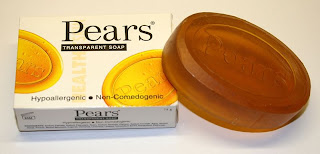Pear’s Soap was not, by most accounts, a conventional brand failure. Indeed, it was one of the longest-running brands in marketing history.
The soap was named after London hairdresser Andrew Pears, who patented its transparent design in 1789. During the reign of Queen Victoria, Pear’s Soap became one of the first products in the UK to gain a coherent brand identity through intensive advertising. Indeed, the man behind Pear’s Soap’s early promotional efforts, Thomas J Barratt, has often been referred to as ‘the father of modern advertising.’
 Endorsements were used to promote the brand. For instance, Sir Erasmus Wilson, President of the Royal College of Surgeons, guaranteed that Pear’s Soap possessed ‘the properties of an efficient yet mild detergent without any of the objectionable properties of ordinary soaps.’
Endorsements were used to promote the brand. For instance, Sir Erasmus Wilson, President of the Royal College of Surgeons, guaranteed that Pear’s Soap possessed ‘the properties of an efficient yet mild detergent without any of the objectionable properties of ordinary soaps.’Barrat also helped Pear’s Soap break into the US market by getting the hugely influencial religious leader Henry Ward Beecher to equate cleanliness, and Pear’s particularly, with Godliness. Once this had been achieved Barratt bought the entire front page of the New York Herald in order to show off this incredible testimonial.
The ‘Bubbles’ campaign, featuring an illustration of a baby boy bathed in bubbles, was particularly successful and established Pear’s as a part of everyday life on both sides of the Atlantic. However, Barratt recognized the ever changing nature of marketing. ‘Tastes change, fashions change, and the advertiser has to change with them,’ the Pear’s advertising man said in a 1907 interview. ‘An idea that was effective a generation ago would fall flat, stale, and unprofitable if presented to the public today. Not that the idea of today is always better than the older idea, but it is different – it hits the present taste.’
Throughout the first half of the 20th century, Pear’s remained the leading soap brand in the UK. However, towards the end of the century the market was starting to radically evolve.
Over the past 100 years, soap has reflected the development of consumer culture. Some of the earliest brand names were given to soap; it was one of the first mass-produced goods to be packaged and the subject of some of the earliest ad campaigns. Its manufacturers pioneered market research; the first TV ads were for soap; soap operas, tales of domestic melodrama, were so named because they were often sponsored by soap companies. Soap made men rich – William Hesketh Lever, the 33-year-old who built Port Sunlight [where Pear’s was produced], for one – and it is no coincidence that two of the world’s oldest and biggest multinationals, Unilever and Procter & Gamble, rose to power on the back of soap.
Recently though, a change has emerged. The mass-produced block has been abandoned for its liquid versions – shower gels, body washes and liquid soap dispensers. In pursuit of our ideal of cleanliness, the soap bar has been deemed unhygienic.
 Of course, this was troubling news for the Pear’s Soap brand and, by the end of the last century, its market share of the soap market had dropped to a low of 3 per cent. Marketing fell to almost zero. Then came the fatal blow. On 22 February 2000 parent company Unilever announced it was to discontinue the Pear’s brand. The cost-saving decision was part of a broader strategy by Unilever to concentrate on 400 ‘power’ brands and to terminate the other 1,200. Other brands for the chop included Radion washing powder and Harmony hairspray.
Of course, this was troubling news for the Pear’s Soap brand and, by the end of the last century, its market share of the soap market had dropped to a low of 3 per cent. Marketing fell to almost zero. Then came the fatal blow. On 22 February 2000 parent company Unilever announced it was to discontinue the Pear’s brand. The cost-saving decision was part of a broader strategy by Unilever to concentrate on 400 ‘power’ brands and to terminate the other 1,200. Other brands for the chop included Radion washing powder and Harmony hairspray.So why had Pear’s lost its power? Well, the shift towards liquid soaps and shower gels was certainly a factor. But Unilever held onto Dove, another soap bar brand, which still fares exceptionally well. Ultimately, Pear’s was a brand
What were the lessons learned from the Pear’s case? Well, firstly, every brand has its time. Pear’s Soap was a historical success, but the product became incompatible with contemporary trends and tastes. Secondly, advertising can help build a brand. But brands built on advertising generally need advertising to sustain them.
This comment has been removed by the author.
ReplyDeleteThis comment has been removed by the author.
ReplyDeleteThere are many ways to improve our business. But, one of the important things that we have to know is brand image. First, brand in every time. Pear's Soap was a successful history, but the product became incompatible with contemporary trend and taste. Second, advertising can help build the brand. But, the brand was built in advertising generally need advertising to sustain them. So, we have to improve and innovative with our brand and product.
ReplyDeleteA business should always be innovative in improving their products. This case of Pear's Soap also often happens in many businesses which is not innovative and cannot attract customers when many competitors with new products emerge. So, a business person should be open-minded and understand changes in a business environment.
ReplyDeleteguys, so whe are talking about product life cycle, aren't we? =D
ReplyDelete